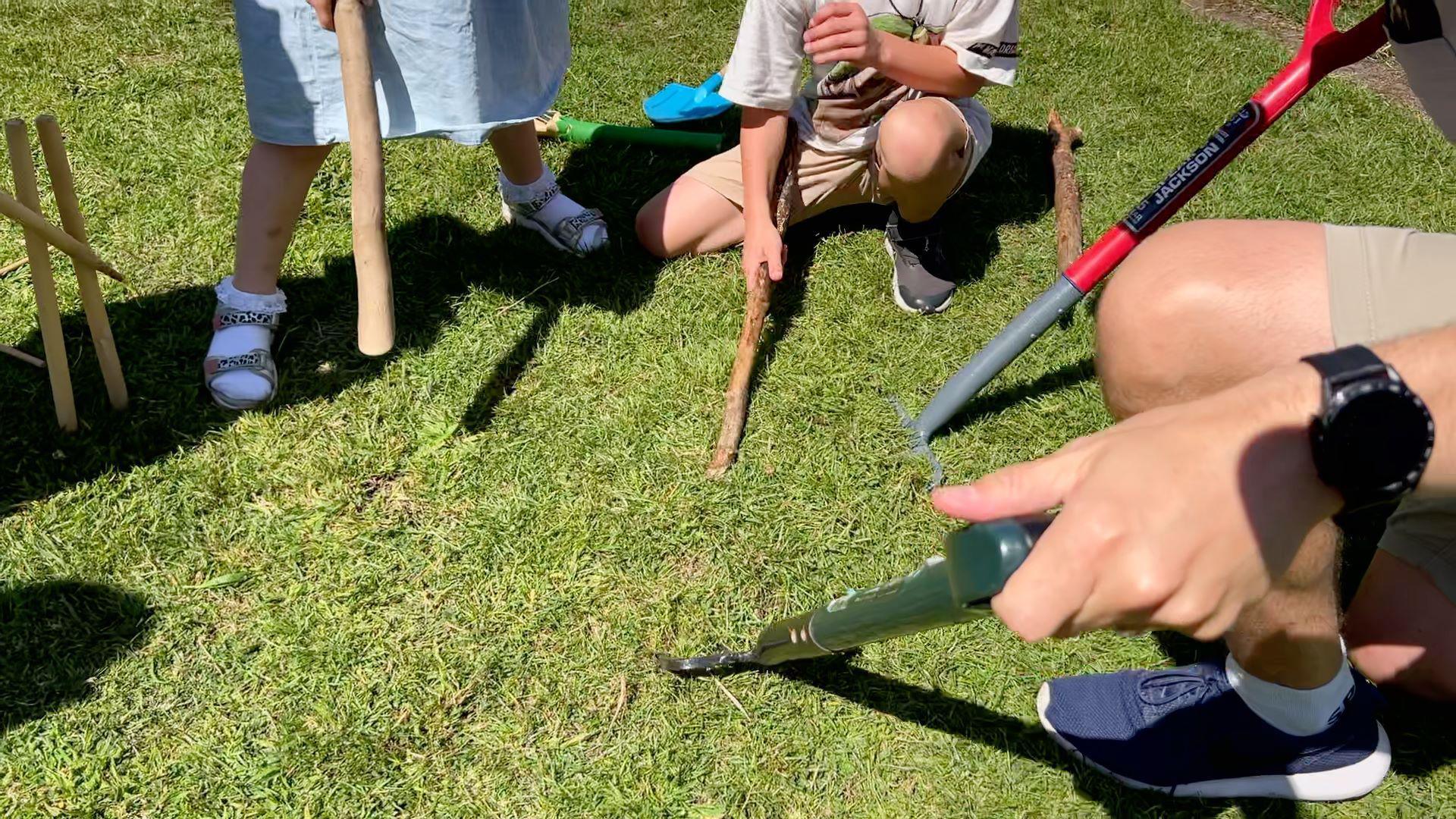Families encouraged to help 'superhero' worms

A recent study found worm populations have fallen by a third in the past 25 years
- Published
Families in Somerset are being encouraged to take part in "worm charming" as part of a survey into the invertebrates.
The Soil Association wants families to become citizen scientists in an effort to monitor falling populations of earthworms.
Earthworms are said to be a "vital" part of the ecosystem, and can even help prevent flooding.
A worm map will hopefully show the organisation where worm populations need to be restored.
'Worms are superheroes'
Alex Burton, head of worms at the Soil Association said a falling population is a "sad story" for the worms, as well as the soil.
"Worms are superheroes," he told BBC Radio Somerset.
"What worms are doing underneath the soil is recycling nutrients through the soil, improving the structure of the soil through their burrows, but also through the mucus they have on their skin, they're repairing damaged soil for us.
"Also, they're a huge food source for other important species - it's a really vital part they play in the ecosystem."
Mr Burton added by improving the soil, earthworms prevent droughts in summer months, and flooding in the winter.
But a recent study found that earthworm populations have declined by a third over the past 25 years – leading experts to call for efforts to restore their numbers.
The study is looking for findings from as many places as possible, encouraging people to get involved and develop a stronger understanding of soil health along the way.
Worm searching can take as little as half an hour and only requires a small area of land, meaning hunts can take place in gardens, farms or local parks.
Worm-charming
Mr Burton said the methods to get worms to the surface and count them are "grounded in nature".
"We're asking people to stamp on the ground to bring them up... to soak the grass and cover it in black plastic."
Mr Burton also said creative techniques such as playing the trumpet or opera singing are among ways in which competitors at the Worm Charming Championships get worms to the surface.
He added: "Worm welfare is a top priority of ours... but what we really want to do is to build a bigger picture of what's going on in the soils of our gardens, allotments and green spaces.
"If you do a worm hunt this year and don't find that many worms, there's loads of things you can do to improve the health of your soil for next year for another count, then we'll be able to see with that data how many more habitats we'll be able to create for worms and what the soils are starting to look like."
Members of the public can download a Worm Hunt Guide on the Soil Association website to get started.